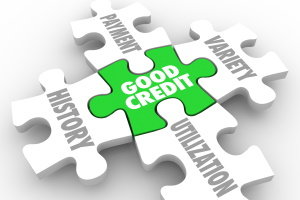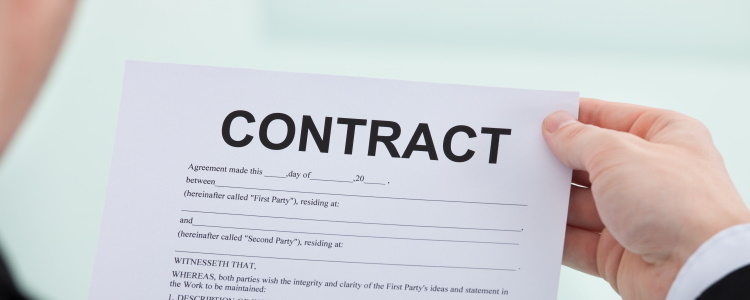If you’re new to credit, or new to financing in general, it's wise to start building good credit right from the start. If you're not sure where to begin, we’ve got some tips for you.
Understanding Credit to Start Building It
It's important to know that you have two main credit scores: FICO Score and VantageScore. Your FICO credit score is the one most used by auto lenders. In fact, it's the oldest credit scoring model around, and usually the most widely used credit scoring model.
Your FICO credit score is made up of five categories that each account for a certain percentage of your total credit score
- Payment history – 35%
- Amounts owed – 30%
- Length of credit history – 15%
- Credit mix – 10%
- New credit – 10%
When you’re just starting out in credit, you can build a solid foundation by taking loans and/or lines of credit so your timely payments contribute to your payment history.
 Payment history is the biggest part of your overall credit score, and it’s something that future lenders are likely to look at when you're financing or applying for new credit. The more on-time payments you make, the more positive payment history you can use to prove to a lender that you can handle repaying debts on time.
Payment history is the biggest part of your overall credit score, and it’s something that future lenders are likely to look at when you're financing or applying for new credit. The more on-time payments you make, the more positive payment history you can use to prove to a lender that you can handle repaying debts on time.
Your credit reports keep a seven-year record of your payment history, so it’s important to make all your payments on time to build a healthy credit score.
The second biggest part of your credit score is the amounts owed. This category keeps track of your loan balances, and tracks your credit utilization ratio – which is how much you owe on revolving credit accounts compared to their maximum borrowing limit. Revolving credit, such as credit cards, can help build credit for new borrowers as long as they're handled responsibly. However, if your credit card balances are over 30% of their limits, they're likely hurting your credit score.
As a new borrower, it’s important to start off your credit history on the right foot. By taking on new credit you can handle, making all your payments on time, and keeping your credit card balances below 30%, you're well on your way to building the good credit you're striving for!
Taking On New Credit as a No Credit Borrower
If you have nothing currently being reported to the credit bureaus, then you're likely to have little to nothing on your credit reports for a lender to see. When this happens, you typically start out with a low credit score, and as a result, you may feel stuck when it comes to applying for new credit.
Not to worry, lenders can usually tell the difference between a low credit score from mismanagement and from a lack of credit history.
To help you start building credit, there are different types of loans and services you can consider to contribute to your new credit history, such as:
- Credit-builder loan – These small loans are typically offered by direct lenders like banks or credit unions. You borrow from the lender, but instead of getting cash in hand, the money is placed in a savings account. Once you’ve paid everything you owe, and the loan is complete, you get the money. As the name suggests, these loans are designed to help borrowers build a credit history, and they’re typically easy to qualify for.
- Credit reporting services – Chances are, you pay for something monthly. Whether it’s a streaming service, your phone bill, or your auto insurance, you may be able to get it added to your credit reports with a credit reporting service, such as Experian Boost. If you’re already paying bills each month, adding them to your credit reports can provide positive payment history without having to add more to your monthly budget.
- Become an authorized user – To build credit and add positive payments to your credit reports without the pressure and responsibility of payments, you may be able to become an authorized user on someone else's credit cards. As an authorized user, you get your own credit card in your name and all the payment history associated with the credit card shows up on your credit reports. It's a good idea to become an authorized user with someone who has a good credit score and is responsible with their credit cards. Anything that happens to the line of credit shows up on your credit report, so if the main cardholder stops making payments, your credit score will drop, too.
Aside from adding things to your credit history, a good way to keep your credit score out of the red is by paying everything on time. A missed payment on an account – whether it’s currently reported or not – has the potential to be sent to a collection agency if the creditor wants to take that action. An account in collections can harm your credit score, and put a stain on your credit history.
Any missed or late payment has the potential to show up on your credit reports, so it's best to stay on top of all your bills to avoid going from a new borrower to a bad credit borrower.
Want a Car Loan to Build Credit?
Many borrowers start off their credit history with an auto loan. As a borrower just starting out in the world of credit, traditional auto lenders may hesitate to extend you financing. However, subprime lenders often have first-time car buyer programs, and work with borrowers who have little to no credit.
Car loans have a lot of credit building potential, since they’re installment loans, and typically take around 48 to 96 months to repay. If you make all your payments on time, that's four to eight years of positive payment history! This can do wonders for your credit score and show future lenders you can repay your debts on time.
Finding auto financing connections isn’t always easy as a new borrower, though.
If you’re in need of a vehicle and your low credit score is getting in the way, then let Auto Credit Express clear the path and connect you to a special finance dealership. Our nationwide network of dealers are signed up with subprime lenders equipped to work with many unique credit circumstances. Fill out our free auto loan request form, and we’ll look for a special finance dealership in your local area.
















